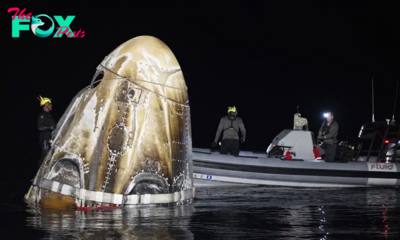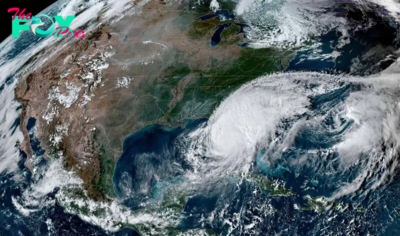Science
Climate change may allow the Earth’s oldest, tiniest creatures to dominate — and that's seriously bad news
The world's oceans are home to microscopic organisms invisible to the human eye. The tiny creatures, known as "prokaryotes", comprise 30% of life in the world's oceans.
These organisms play an important role in keeping the oceans in balance. But new research by myself and colleagues shows this balance is at risk.
We found prokaryotes are remarkably resilient to climate change — and as a result, could increasingly dominate marine environments.
This could reduce the availability of fish humans rely on for food, and hamper the ocean's ability to absorb carbon emissions.
A fine balance
Prokaryotes include both bacteria and "archaea", another type of single-celled organism.
These organisms are thought to be the oldest cell-based lifeforms on Earth. They thrive across the entire planet — on land and in water, from the tropics to the poles.
RELATED: Bizarre, never-before-seen viruses discovered thriving throughout the world's oceans
-

 Science4d ago
Science4d agoInside Capitol Hill’s Latest UFO Hearings
-

 Science4d ago
Science4d agoYou Won’t Want to Miss the Leonid Meteor Shower. Here’s How and When You Can See It
-

 Science5d ago
Science5d agoHere’s What Trump’s Win Means for NASA
-

 Science1w ago
Science1w agoWhy Risky Wildfire Zones Have Been Increasing Around the World
-

 Science1w ago
Science1w agoIt’s Time to Redefine What a Megafire Is in the Climate Change Era
-

 Science1w ago
Science1w ago4 Astronauts Return to Earth After Being Delayed by Boeing’s Capsule Trouble and Hurricane Milton
-

 Science1w ago
Science1w agoThe Elegance and Awkwardness of NASA’s New Moon Suit, Designed by Axiom and Prada
-

 Science2w ago
Science2w agoSpaceX Launches Its Mega Starship Rocket. This Time, Mechanical Arms Catch It at Landing


























